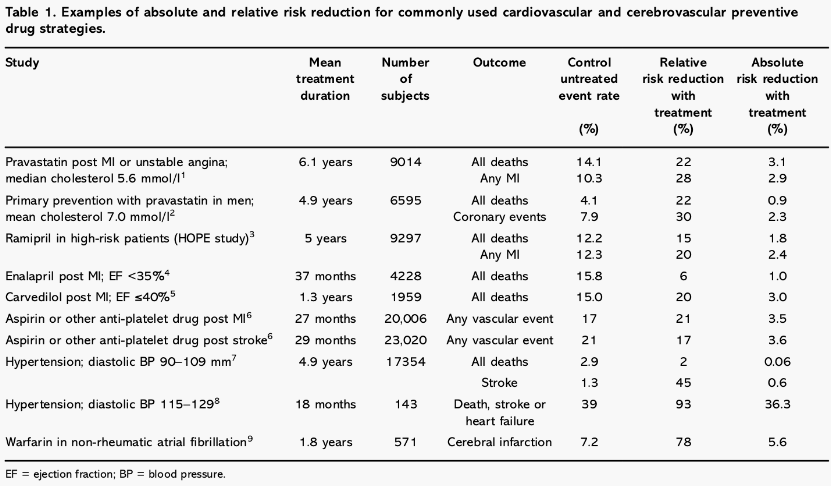Diet vs. Drugs
For many chronic conditions, diet is more effective than drugs and only has good side effects.
The actual benefits of drugs
An absolute risk reduction of 2 or 3 percent may not like much. Doctors prescribe drugs with such small benefits because they have seen how devastating heart attacks and strokes are to their patients' quality of life. However, few consider that the WFPB diet is far more effective and only has good side effects.
https://nutritionfacts.org/video/the-actual-benefit-of-diet-vs-drugs/
- 1:27 Table 1. For most people the chance of benefit is normally less than 5% over five years for cholesterol, blood pressure, and blood-thinning drugs. Doctors and drug companies tend to not mention how tiny the health benefits actually are.
- 2:27 Table 1. The best cholesterol-lowering statin drugs can do here is an absolute risk reduction of 3.1% over six years. A whole foods plant-based diet has been shown to an absolute risk reduction of 60% after less than four years.
Are preventive drugs preventive enough? A study of patients' expectation of benefit from preventive drugs. 2002
https://www.ncbi.nlm.nih.gov/pmc/articles/PMC4953904/pdf/527.pdf
For the majority [of patients], the expectation of benefit from a preventive drug is higher than the actual benefit provided …
Much misunderstanding of the benefits of preventive drug strategies arises from the use of relative risk reduction in the medical literature, drug advertisements and the press.

MI = myocardial infarction (heart attack)
Why you should always use absolute risk numbers.
https://www.healthnewsreview.org/toolkit/tips-for-understanding-studies/absolute-vs-relative-risk/
If the 5-year risk for heart attack is 2% in a group of patients treated conventionally and 1% in patients treated with the new drug, then
- the absolute difference is: 2% – 1% = 1%
- the relative difference is: 1% ÷ 2% = 50%
Cancer Prevention and Treatment by Wholistic Nutrition 2017 by Campbell
https://www.ncbi.nlm.nih.gov/pmc/articles/PMC5646698/
Cytotoxic chemotherapy (for 22 types of cancer) increases 5-year survival only by 2.1%.


